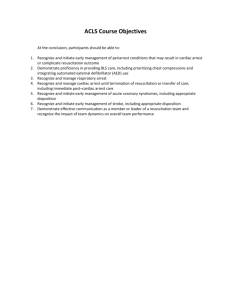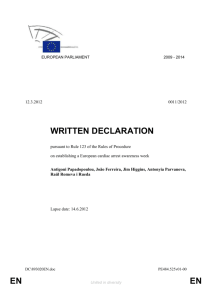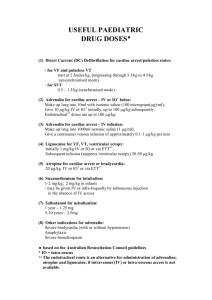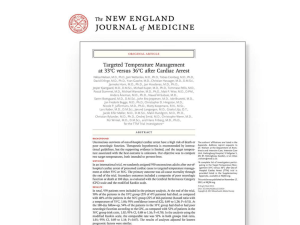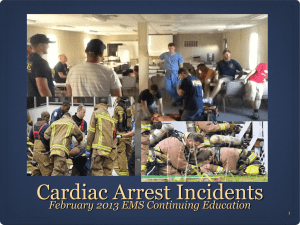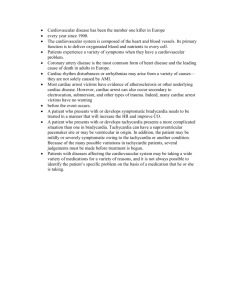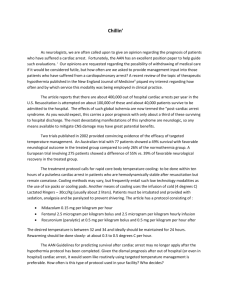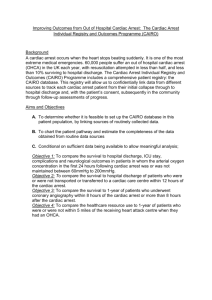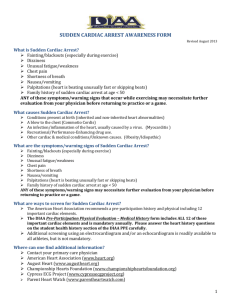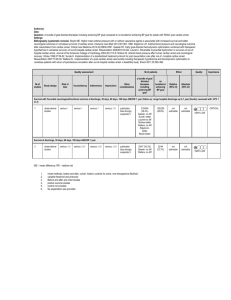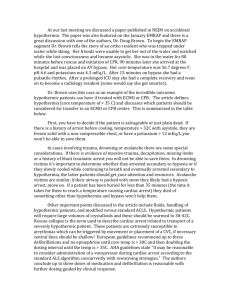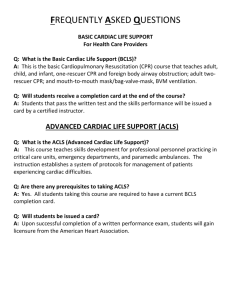View - aoahyderabad2015
advertisement
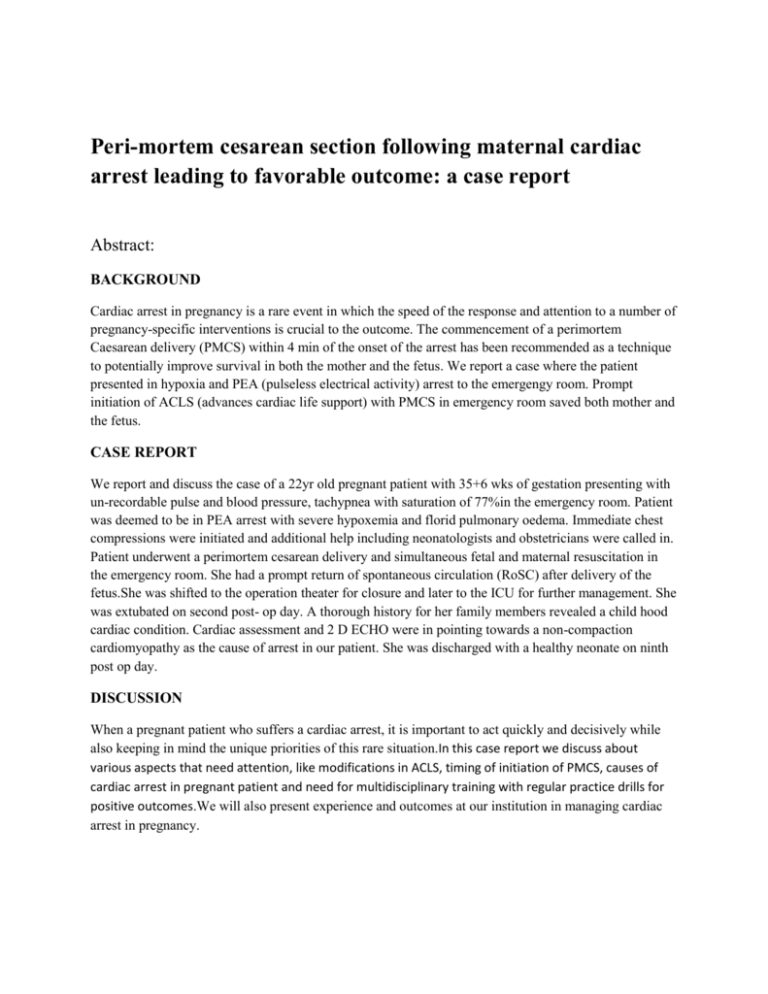
Peri-mortem cesarean section following maternal cardiac arrest leading to favorable outcome: a case report Abstract: BACKGROUND Cardiac arrest in pregnancy is a rare event in which the speed of the response and attention to a number of pregnancy-specific interventions is crucial to the outcome. The commencement of a perimortem Caesarean delivery (PMCS) within 4 min of the onset of the arrest has been recommended as a technique to potentially improve survival in both the mother and the fetus. We report a case where the patient presented in hypoxia and PEA (pulseless electrical activity) arrest to the emergengy room. Prompt initiation of ACLS (advances cardiac life support) with PMCS in emergency room saved both mother and the fetus. CASE REPORT We report and discuss the case of a 22yr old pregnant patient with 35+6 wks of gestation presenting with un-recordable pulse and blood pressure, tachypnea with saturation of 77%in the emergency room. Patient was deemed to be in PEA arrest with severe hypoxemia and florid pulmonary oedema. Immediate chest compressions were initiated and additional help including neonatologists and obstetricians were called in. Patient underwent a perimortem cesarean delivery and simultaneous fetal and maternal resuscitation in the emergency room. She had a prompt return of spontaneous circulation (RoSC) after delivery of the fetus.She was shifted to the operation theater for closure and later to the ICU for further management. She was extubated on second post- op day. A thorough history for her family members revealed a child hood cardiac condition. Cardiac assessment and 2 D ECHO were in pointing towards a non-compaction cardiomyopathy as the cause of arrest in our patient. She was discharged with a healthy neonate on ninth post op day. DISCUSSION When a pregnant patient who suffers a cardiac arrest, it is important to act quickly and decisively while also keeping in mind the unique priorities of this rare situation.In this case report we discuss about various aspects that need attention, like modifications in ACLS, timing of initiation of PMCS, causes of cardiac arrest in pregnant patient and need for multidisciplinary training with regular practice drills for positive outcomes.We will also present experience and outcomes at our institution in managing cardiac arrest in pregnancy.
